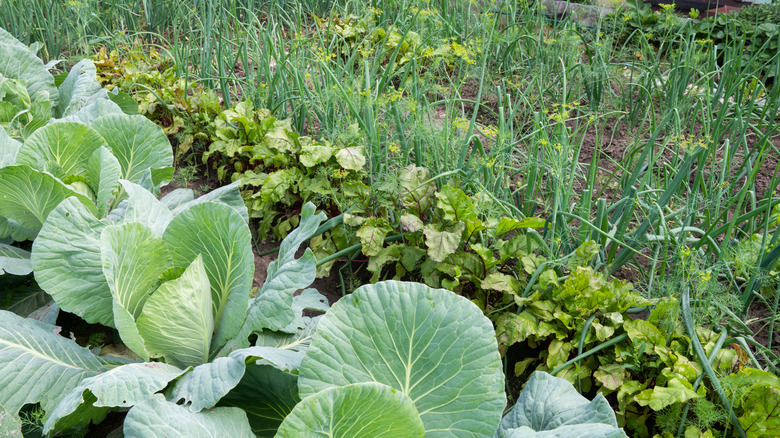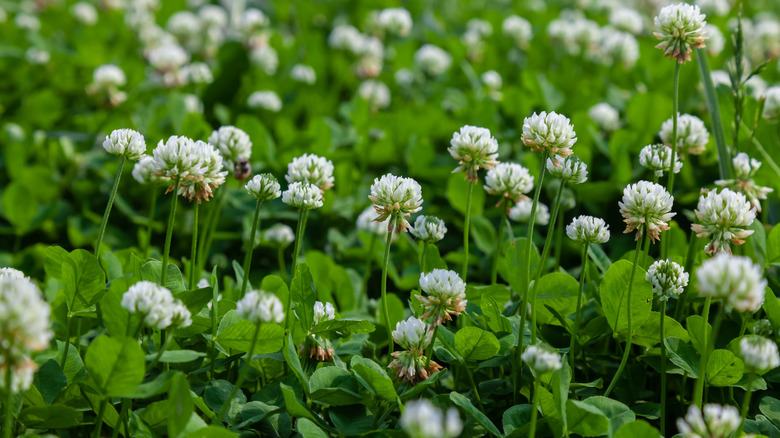Keep Weeds Out Of Your Vegetable Garden With The Help Of One Fast-Growing Plant
As much as we enjoy collecting homegrown produce from our vegetable gardens, the upkeep of these sensitive spaces can make the entire process overwhelming. While there are a number of possible strategies for keeping your vegetable garden free of weeds, you may want to avoid chemical solutions, even if you use the safest types of weed killer in your vegetable garden. Instead, let another plant do the work for you with a living mulch. There is one that stands above them all in terms of simplicity and effectiveness: adding white clover (Trifolium repens) as a companion plant.
In most veggie gardens, one of the biggest risk areas are the spaces between vegetable rows. Due to more frequent tilling of the soil as well as spaced-out seedlings, weeds can easily find their way into these overlooked areas and steal natural resources like sunlight and water from your plants. Anywhere weeds can find a small space to germinate, they will grow. The thinner and spottier the vegetable garden bed, the higher the chance of weeds popping up. While some gardeners might stress over which is best: biodegradable mulch or landscaping fabric for weeds, planting clover is a simple and low-maintenance weed-killing strategy.
Clover works to suppress weeds
In order to grow properly, weeds require multiple resources such as sun, water, space, and nutrients. White clover grows quickly and has a shallow, dense root structure that takes away these natural resources from any unwanted and aggressive weeds trying to grow. By spreading overtop and shading the empty soil, clover continues to defend your veggie seeds and garden beds against the possible germination of pesky weeds. Since weeds require sun to grow, growing clover as a shade cover makes it pretty difficult for that process to happen.
Depending on your climate, add clover to your vegetables in the spring or late summer/early fall, ideally when the temperature is anywhere between 60 and 85 degrees Fahrenheit. If you already have weeds taking root in your vegetable garden, you'll need to kill those first and clear the area before adding in your clover. Scarify the seeds and lightly press them into the soil no more than ½ inch deep. Water well, and continue watering regularly for at least two to four weeks, which is about the time of germination.
Clover does not require a ton of supervision; however, you might want to keep your eye out for trimming in case it starts to overwhelm your veggies. While it is a perennial plant that grows well in USDA Hardiness Zones 3 through 10, clover can die due to environmental factors such as temperature and soil type, so it's important to keep an eye on its health. Clover is reported as invasive in some regions, including Oregon, Kentucky, West Virginia, and Michigan, so verify it is not invasive in your area before planting it.

